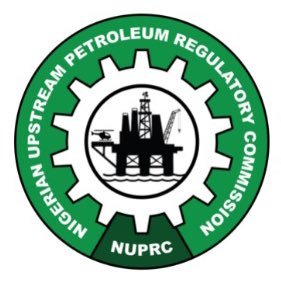The Nigerian Upstream Petroleum Regulatory Commission (NUPRC) has announced the issuance of seven new regulations with the aim of establishing a regulatory framework that ensures efficiency, predictability, clarity, and effectiveness in the Nigerian oil and gas sector.
This announcement was made by NUPRC Chief Executive Gbenga Komolafe in a statement. The regulations were officially signed and issued at the commission’s headquarters in a ceremony attended by Ogonnaya Orji, the Executive Secretary of the Nigerian Extractive Industry Transparency Initiative (NEITI), in Abuja. With these new regulations, the total number of regulations concluded and issued by the commission in accordance with the Petroleum Industry Act (PIA) of 2021 has reached twelve.
According to Mr. Komolafe, these twelve regulations, including the newly issued ones, serve as vital regulatory tools for the commission to fulfill its statutory responsibilities under the PIA regime. The commission initially identified eighteen regulations as priorities, and the issuance of these regulations marks a significant milestone in the commission’s ongoing efforts to achieve the goals of the PIA and reform the upstream petroleum sector.
The seven newly introduced regulations are as follows: the Nigeria Upstream Petroleum Measurement Regulations 2023; the Production Curtailment and Domestic Crude Oil Supply Obligation Regulations 2023; the Frontier Basins Exploration Fund Administration Regulations 2023; the Nigeria Upstream Decommissioning and Abandonment Regulations 2023; the Significant Crude Oil and Gas Discovery Regulations 2023; the Gas Flaring, Venting, and Methane Emission (Prevention of Waste and Pollution) Regulations 2023; and the Nigeria Upstream Petroleum Unitization Regulations 2023.
Mr. Komolafe emphasized that all twelve regulations, including the previous five that were gazetted between June and October 2022, are groundbreaking and designed to establish a regulatory environment that ensures efficiency, predictability, clarity, and effectiveness in the industry while fulfilling the commission’s mandate.
The PIA of 2021 grants the commission the authority to create regulations that give substance and purpose to the spirit of the act. Therefore, the commission promptly took action by drafting regulations, five of which were initially gazetted and published. Gazetting the twelve regulations demonstrates the commission’s commitment to fostering a business-friendly environment in the Nigerian upstream oil and gas industry.
Mr. Komolafe acknowledged that the formulation of these regulations was a challenging and exhaustive process, involving extensive consultations with stakeholders during the first, second, and third phases between 2022 and 2023. The input from these engagements was taken into account during the drafting of the regulations. The drafts were subsequently forwarded to the Attorney General of the Federation and Minister of Justice for review, standardization, and approval. Despite the difficulties encountered throughout the process, the commission’s regulation development team demonstrated critical thinking, engaged with industry stakeholders, evaluated carefully, and worked diligently to achieve the desired outcome.
Mr. Komolafe also urged the team to intensify their efforts in completing work on the remaining regulations they are currently working on, as well as the ones that have been identified and are under development. The commission reassured the industry of its unwavering commitment to develop and implement policies that foster a conducive environment for growth and increased investments in the Nigerian upstream oil and gas sector.

